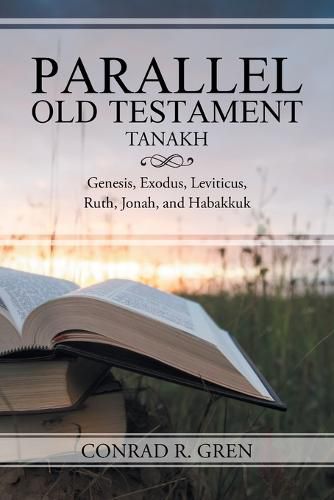Readings Newsletter
Become a Readings Member to make your shopping experience even easier.
Sign in or sign up for free!
You’re not far away from qualifying for FREE standard shipping within Australia
You’ve qualified for FREE standard shipping within Australia
The cart is loading…






This title is printed to order. This book may have been self-published. If so, we cannot guarantee the quality of the content. In the main most books will have gone through the editing process however some may not. We therefore suggest that you be aware of this before ordering this book. If in doubt check either the author or publisher’s details as we are unable to accept any returns unless they are faulty. Please contact us if you have any questions.
This work presents Genesis, Exodus, Leviticus, Ruth, Jonah and Habakkuk translated from Greek and Hebrew in parallel. The most authoritative Greek (Rahlfs) and Hebrew (BHS) texts available are the base texts, as used by NETS (New English Translation of the Septuagint) and modern English Bibles (such as ESV, NIV, NASB, RSV, NRSV, NEB, REB and NAB). Where available, Mr. Gren supplements these texts with newer editions being issued (Greek text - Gottingen Septuagint; Hebrew text - BHQ).
This dual translation provides definitive insight into Dead Sea Scroll variants, and New Testament usage of the Old Testament. Many Dead Sea Scroll variants are incorporated into the text, particularly when scholarly consensus identifies them as probable original readings. In addition, all passages quoted in the New Testament are presented in bold with a detailed analysis. The reader can see how the New Testament quotations relate to both the Greek Old Testament, from which it frequently derives, and the original Hebrew text.
This work enhances the reader’s understanding of Jewish and Greek culture, history and language. Mr. Gren translates both Greek and Hebrew as literally as possible, to facilitate comparison. He emphasizes both Greek and Hebrew word derivations and spellings. The Greek and Hebrew translations will stand on their own independently, yet are presented in parallel to facilitate comparison of differences and similarities
.
$9.00 standard shipping within Australia
FREE standard shipping within Australia for orders over $100.00
Express & International shipping calculated at checkout
This title is printed to order. This book may have been self-published. If so, we cannot guarantee the quality of the content. In the main most books will have gone through the editing process however some may not. We therefore suggest that you be aware of this before ordering this book. If in doubt check either the author or publisher’s details as we are unable to accept any returns unless they are faulty. Please contact us if you have any questions.
This work presents Genesis, Exodus, Leviticus, Ruth, Jonah and Habakkuk translated from Greek and Hebrew in parallel. The most authoritative Greek (Rahlfs) and Hebrew (BHS) texts available are the base texts, as used by NETS (New English Translation of the Septuagint) and modern English Bibles (such as ESV, NIV, NASB, RSV, NRSV, NEB, REB and NAB). Where available, Mr. Gren supplements these texts with newer editions being issued (Greek text - Gottingen Septuagint; Hebrew text - BHQ).
This dual translation provides definitive insight into Dead Sea Scroll variants, and New Testament usage of the Old Testament. Many Dead Sea Scroll variants are incorporated into the text, particularly when scholarly consensus identifies them as probable original readings. In addition, all passages quoted in the New Testament are presented in bold with a detailed analysis. The reader can see how the New Testament quotations relate to both the Greek Old Testament, from which it frequently derives, and the original Hebrew text.
This work enhances the reader’s understanding of Jewish and Greek culture, history and language. Mr. Gren translates both Greek and Hebrew as literally as possible, to facilitate comparison. He emphasizes both Greek and Hebrew word derivations and spellings. The Greek and Hebrew translations will stand on their own independently, yet are presented in parallel to facilitate comparison of differences and similarities
.